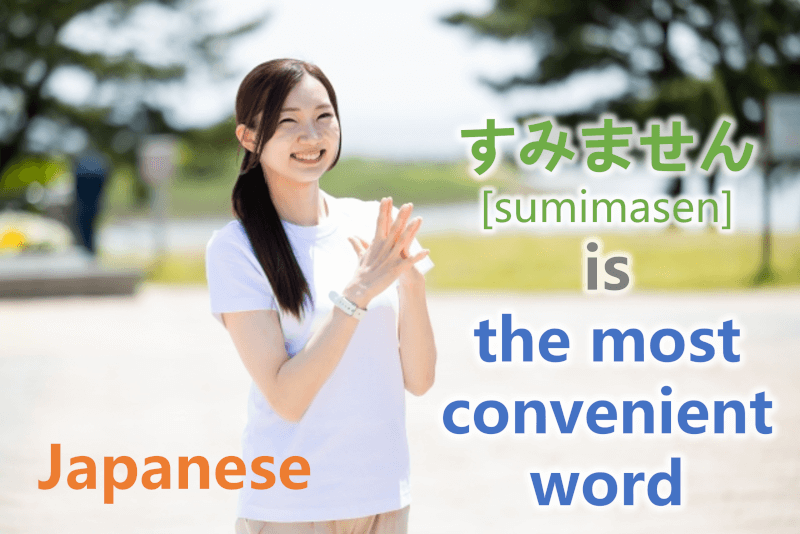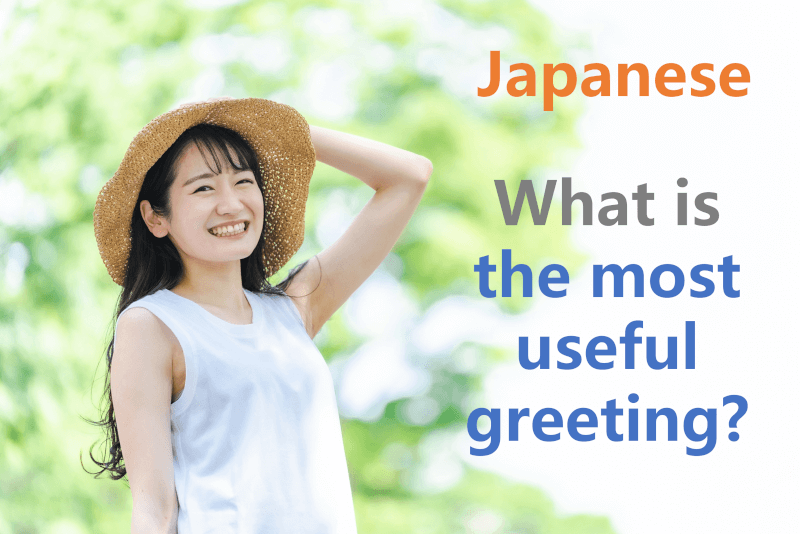Click here for the Chinese version
点击这里并查看中文版本
Is the most common greeting "Thank you"?
When you go abroad, you may wish to learn the word of "Thanks".
Yes, you are right! Saying "Thank you" makes both of us happy and comfortable. There is no doubt that "Thank you" is the most important greeting.
The typical Japanese of "Thanks" is:
ありがとう
[arigatou]
| Hiragana | あ | り | が | と | う |
| Pronunciation | a | ri | ga | to | u |
As you may be aware that the differences on the pronunciation between English and Japanese are huge. Is this phrase difficult for you?
Don't worry!
If Japanese listened the non-native pronunciation, then found you are a foreigner, it is nicer than the natural native pronunciation.
What does it mean? In fact, Japanese people prefer using little more formal expressions in the public places. However, the formal one is little more complicated.
When a Japanese found you are a foreigner who has learnt Japanese language, he will see your manners and be happy, even if your greeting was informal.
More formal Japanese of "Thank you" is:
ありがとうございます
[arigatougozaimasu]
or
ありがとうございました
[arigatougozaimashita]
| Hiragana | あ | り | が | と | う | ご | ざ | い | ま | す |
| Pronunciation | a | ri | ga | to | u | go | za | i | ma | su |
| Hiragana | あ | り | が | と | う | ご | ざ | い | ま | し | た |
| Pronunciation | a | ri | ga | to | u | go | za | i | ma | shi | ta |
Although both express "Thank you", but they mean a bit deeper.
In the public places, this is more suitable because of the social distance is not so close.
HOWEVER, IT MAY BE TOO LONG AND HARD TO SAY!
So, if you can overcome, that is great!
Well, I will teach you the most useful greeting.
The most useful greeting is "すみません"

The most useful greeting is "すみません". Have you heard it?
すみません
[sumimasen]
| Hiragana | す | み | ま | せ | ん |
| Pronunciation | su | mi | ma | se | n |
Let us start by looking at the dictionary.
すみません interjection
I’m sorry, excuse me, pardon me
Cambridge Dictionary (https://dictionary.cambridge.org/)
Oops, the dictionary does NOT explain properly! I checked the other dictionaries, but they are similar!
I am not recommending you apologies. That is why I am writing this article for you!
The word origin of "すみません"
"すみません" [sumimasen] is a composite word from the following two words.
- すむ(済む) [sumu]: completed, finished, enough, sufficient
- ません [masen]: Not
As the spoken language, "すむ(済む)"+"ません" turned into "すみません".
Therefore, the actual meaning is:
My mind to you is not good enough or sufficient.
"すみません" is the most common word in the daily life.
Some people pronounce or write as "すいません" [suimasen]. This is a misuse from the spoken language, but the meaning is same.
How to use "すみません"?
Although the dictionaries shows the number of apologies, the meaning of "Thanks" is the most used.
I am sure the case of apologies is not often.
The meanings of "すみません" are:
- Thanks
- Hello
- Excuse me, sorry, pardon me
- I am sorry
The accent is changed on each occasion, and the meaning is changed.
It is so convenient!
Let me explain the details for each.
1. Thanks
This is the most used case. You can say "すみません" to show the informal "Thanks" for the somebody’s help or kindness.
When you brightly say, the meaning will be "Thanks".
In this case, the speaking can be little faster.
Also, this can be used for "How kind of you" in some cases.
2. Hello
In the restaurant or store, you can say "すみません" to call the waiters or store staff.
You may be able to make the "せ" [se] sound a bit longer to speak more natural.
For example,
"すみませーん" [sumimase-e-n]
"すみませ~ん" [sumimase~n]
"すみません" is not used the other situations such as instead of "Good afternoon" or start speaking on the phone.
3. Excuse me, sorry, pardon me
When you made an inconvenience or disturb others, "すみません" will be "Excuse me".
You can use "すみません" as "sorry" or "pardon me" whenever asking something.
This can be a spoken or written word.
4. I am sorry
When you say "すみません" with a slightly grim face, the meaning will be "I am sorry". However, this is a fairly rare case.
This can be a spoken or written word.
I hope you have got the natural usages of "すみません".
The word of "すみません" has a lot of meaning and really convenient.
Thank you for reading!








